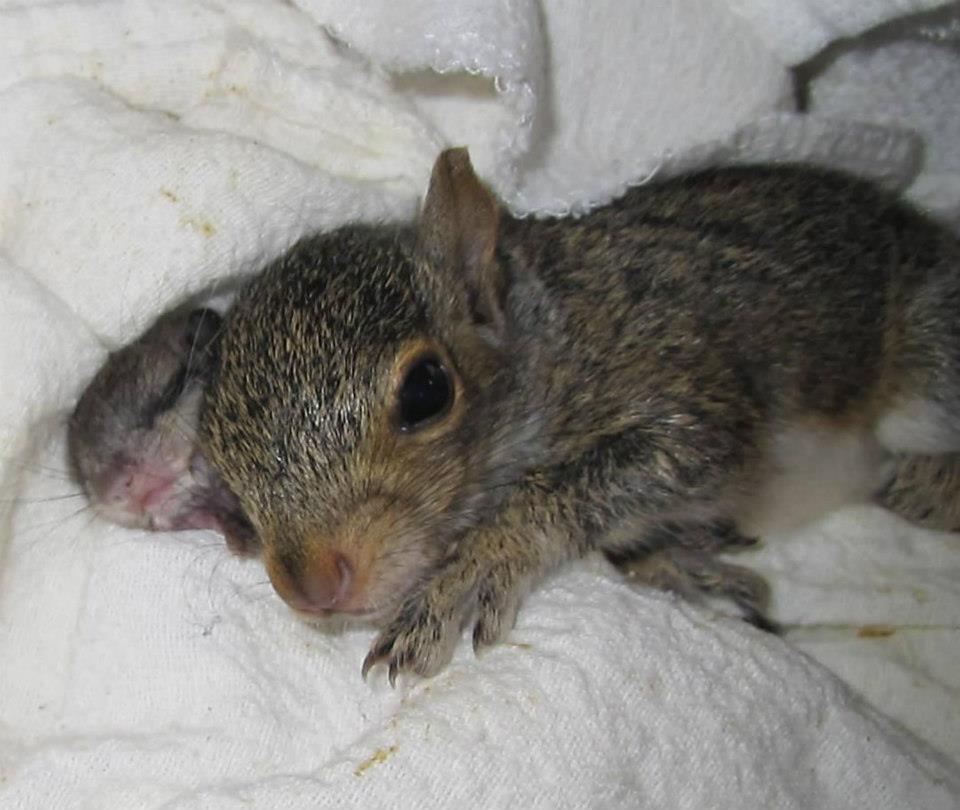Thank you for caring about wildlife! This page will offer you some “first response” guidelines on what to do and what not to do if you’ve found orphaned or injured wildlife.
There are a couple of important things to know:
- Not all animals need help right away! If the animal is NOT in immediate danger from wounds or predators, monitor it from a distance and, before touching it, consult these guidelines and our species-specific resources below.
- Wild animals can react strongly when experiencing fear or pain. Smaller animals also have delicate limbs and joints that can be damaged by improper or rough handling. Before touching the animal, protect yourself with equipment such as gloves, and protect the animal by capturing gently with towels, soft netting, or a padded box.
- Captured wild animals must be kept in a quiet, dark place far away from children, people, and other animals such as pets. Wild animals can transmit parasites and illnesses to humans and other pets, and high contact with humans and animals can stress already traumatized wildlings. As much as possible, avoid handling wild animals, and take care to wash your hands.
- If you already have the animal contained, DO NOT FEED IT. Animals experiencing injury, extreme stress, or shock need medical treatment first, and snacks later. (If your child broke an arm, would you rush her or him to a restaurant, or to a hospital?) Furthermore, many wild animals have very specific dietary requirements and limitations, and feeding them the wrong food can do more harm than good.
- Do not EVER feed cow’s milk or human baby formula to young wild animals! These fluids cause health issues that often kill animals! It is preferable not to feed at all while transferring the animal to a wildlife rehabilitator.
- For animals that are young or in shock, a heat source must be provided. Put a heating pad (set on “low”) under only half of the carrier or box used to contain them, or fill a water bottle with hot/warm (NOT boiling) water and secure it near the animal, where it won’t roll onto small critters. Most importantly, the animal MUST be able to get away from the heat source if it gets too warm for them.
- For more details, see the following species-specific guides:
Birds Deer Opossums Raccoons Squirrels
Not in South Carolina? Use our directory to find listings for licensed wildlife rehabilitators in any state.
A note on dogs & cats: Our focus is on wildlife, and we do not treat or take in dogs, cats, and most other domesticated animals. If you are experiencing an emergency with a stray dog or cat, however, you can contact us and we’ll help you figure out what to do. The health & welfare of all animals is important to us!
“Why Can’t I Just Raise It Myself?” Tempting though it may be to keep the wild animal, allow us to list some reasons why it is best turned over to a licensed rehabilitator:
- Licensed rehabilitators have been trained to handle various species of animals, each with their special needs and quirks. While it may seem like fun, well-meaning but inexperienced people too often end up unintentionally doing more harm than good, and hurting the very animals they mean to help.
- It is not always apparent when a wild animal is in trouble. By the time symptoms are available to a novice, they may no longer be treatable. Rehabilitators know how to read subtle signs; they also know about the various parasites and diseases that each species can carry, and know how to safely handle the animals.
- In many cases, it is illegal to rehabilitate wild animals without a license. For example, it is a federal offense to rehabilitate birds, such as songbirds, hawks, owls, ducks, and geese, without the proper permits. Offenders can meet with hefty fines and even jail time.
- Rehabilitators also know how to prepare the animals for release back into the wild. An animal cannot be treated like a family pet and then be expected to suddenly adjust when they are dropped into the woods one day; rehabilitators have the necessary equipment and facilities to reacclimate rehabbed animals to a life in the wild.



